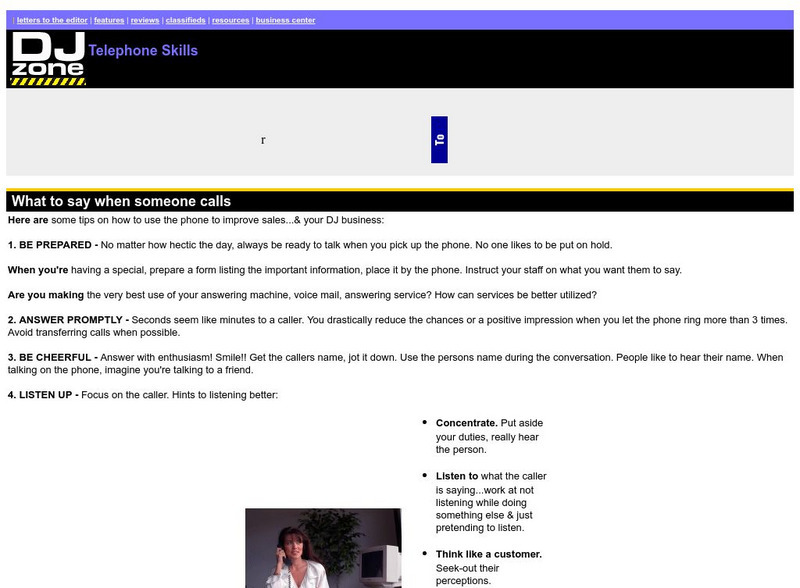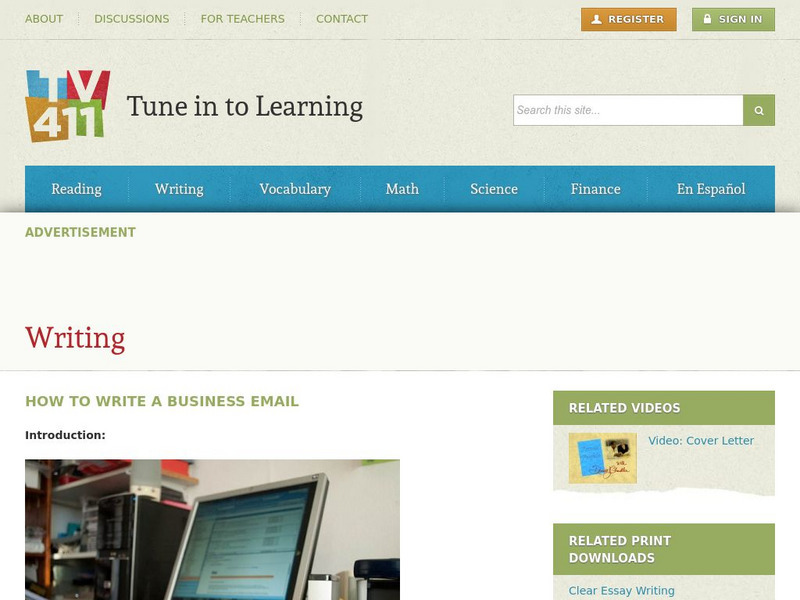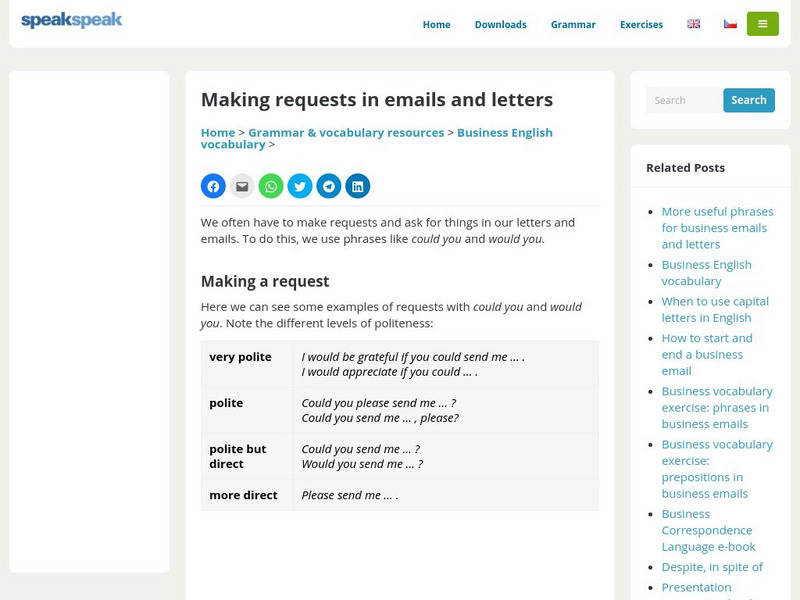Project Gutenberg
Project Gutenberg: The Old Bachelor: A Comedy by William Congreve
Congreve's first play, The Old Bachelor: A Comedy, is available here, formatted for online reading, including its dedication to the Right Honourable Charles, Lord Clifford of Lanesborough, and various other introductory material. There...
Project Gutenberg
Project Gutenberg: Love for Love: A Comedy by William Congreve
The complete text of William Congreve's play, Love for Love: A Comedy, available in multiple formats.
Other
Insafe: Safer Internet Centres: Communicating Respectfully [Pdf]
A 16-page textbook designed to give students in Grades 1 and 2 insights into various means of communication whilst drawing on real-life parallels of rights and responsibilities. Includes coloring pages for students and links to several...
REMC Association of Michigan
Remc Association of Michigan: 21 Things4 Students: 6. Cyber Safety
This learning module is made up of nine quests organized into sets of three. In the first set, students learn how to protect themselves online. In the second, they go through three simulations/games to learn how to protect their...
Other
Australian Culture
This homepage offers many links to different areas of Australian culture, including social etiquette, humor, inventions, science, quotes, dining, and many others.
Other
Executive Planet: Taiwan Culture Guide
With this resource you can learn more about an international culture. Explore business culture customs, and etiquette with the variety of resources this guide offers.
Other
The People's Paths: Remarks Concerning the Savages of North America
Written in 1784, this piece by Benjamin Franklin, considers the relative meaning of civilization and manners while he recalls several anecdotes of interaction between the European settlers and the Natives of North America.
Sophia Learning
Sophia: Incorporating Quotes in Writing
This slideshow lesson focuses on how to incorporate quotes into writing. It explains the rules for using quotation marks, discusses how writers use quotation marks, and explains quotation etiquette with examples of single quotations and...
Sophia Learning
Sophia: Nine Elements of Digital Citizenship
Article that discusses nine elements of digital citizenship, including Access, Commerce, Communication, Literacy, Etiquette, Law, Rights and Responsibilities, Health and Wellness, and Security.
Other
Georgia Geocachers Association
While much of the information on this site is specific to Georgia geocaching, there is also excellent general information from members of the association regarding how to geocache, some etiquette guidelines, and advice about the types of...
Other
U.s. Coast Guard: International Military Student Guide to American Culture
The U.S. Coast Guard has taken American culture and condensed it for foreigners coming to the United States. Topics include major cultural elements, verbal greetings, classroom etiquette, slang, etc. This guide has generalizations and...
Better Lesson
Better Lesson: Email Clarifying Questions
At the end of this activity, students will demonstrate the use of commas, clarifying questions, and a friendly letter format by sending an email. Email is part of student's lives, and it is part of the digital landscape they will need to...
Other
Los Angeles Unified School District: How Did Students Have Fun Long Ago?
Learners will recognize similarities and differences of earlier generations in such areas as work (inside and outside the home), dress, manners, stories, games and festivals, drawing from biographies, oral histories, and folklore. Links...
Alabama Learning Exchange
Alex: Character Education "Respect"
This lesson will be implemented as part of a character education unit on integrity. Students will apply research skills, open-ended discussions, and cooperative learning experiences to investigate the meaning of "respect." Practicing...
Cornell University
Cornell University: Hearth/home Economics Education
Housed at the Mann Library, this resource contains a comprehensive set of books and journals in the field of Home Economics, many available online. Each subject area in the field has a descriptive essay plus a bibliography related to...
Sophia Learning
Sophia: Characterization Through Description
This slideshow focuses on authors defining characters through description such as features, dress, mannerisms, emotions, and objects. It provides several examples from Bram Stoker's "Dracula."
Unite for Literacy
Unite for Literacy: Cboces: Migrant Education Program: What Good Is a Line?
Learn about all the different ways that people use lines. Includes audio narration in 15 additional languages with text in English.
University of Florida
University of Florida: Netiquette Guide for Online Courses [Pdf]
This guide provides tips for how to behave during an online course and just in general when you communicate through the Internet. It looks at password protection, online communication, email, and message boards.
Other
Dj Zone: What to Say When Someone Calls
This site gives great tips for answering the phone in the most efficient and polite manner possible. Pretty good overview of basic telephone skills.
Other
Albion.com: Netiquette Home Page
A thorough netiquette guide to keep you from social communication blunders in your email messages. Includes a quiz.
Other
Ntlf: Class Participation Assessment Rubric
This rubric is a means of restricting the subjective element in an assessment process of a Socratic dialogue, which inevitably has a subjective aspect. It suggests that students should be scored on the basis on the teacher's...
Other
Japan Guide: Eating in a Japanese Restaraunt
Find out how to eat properly in a Japanes restaraunt and what you should expect during your dining expereince.
Education Development Center
Alma: Setting the Tone
Discover more about personal letter writing when you use this informative site from the Adult Literacy Media Alliance. This site gives you tips on how to set the tone of your personal letter. This is an excellent resource for all ages.
Other
Speak Speak: Making Requests in Emails and Letters
We often have to make requests and ask for things in our letters and emails. To do this, we use phrases like 'could you' and 'would you.' Here we can see some examples of requests using these. Note the different levels of politeness.
Other popular searches
- Table Etiquette
- Telephone Etiquette
- Etiquette Skills
- Phone Etiquette
- Manners Etiquette
- Business Etiquette
- Manners and Etiquette
- Dining Etiquette
- Dinner Etiquette
- Email Etiquette
- Audience Etiquette
- Table Manners for Kids
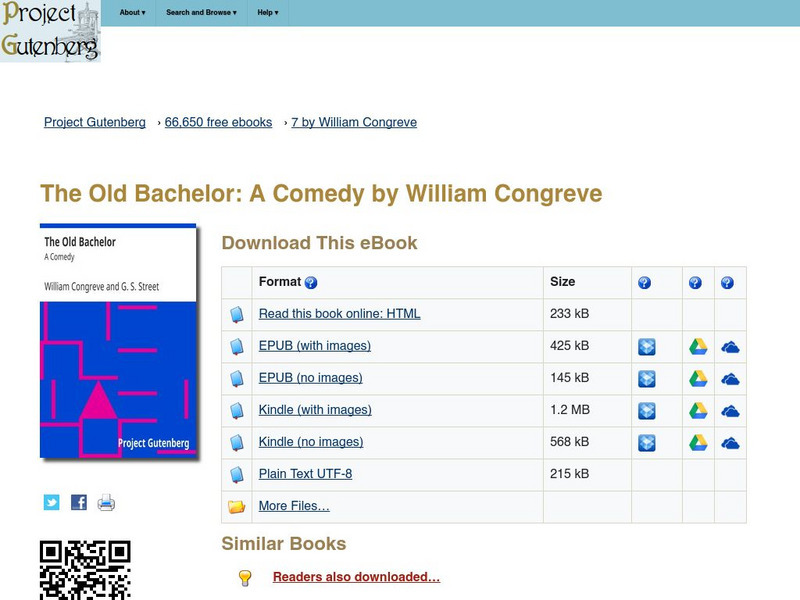

![Insafe: Safer Internet Centres: Communicating Respectfully [Pdf] Handout Insafe: Safer Internet Centres: Communicating Respectfully [Pdf] Handout](https://d15y2dacu3jp90.cloudfront.net/images/attachment_defaults/resource/large/FPO-knovation.png)



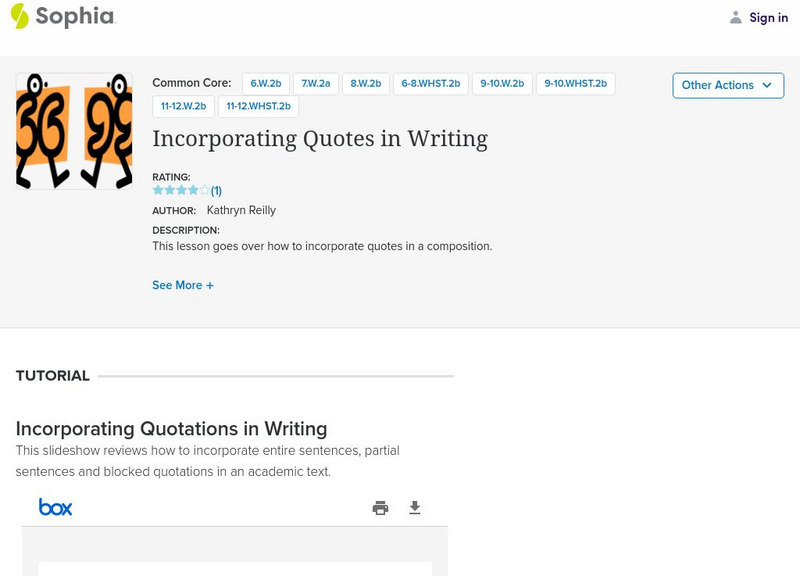





![University of Florida: Netiquette Guide for Online Courses [Pdf] Handout University of Florida: Netiquette Guide for Online Courses [Pdf] Handout](https://content.lessonplanet.com/knovation/original/1027543-1e8105a03e0395533b8224fcd1a42058.jpg?1661561031)
